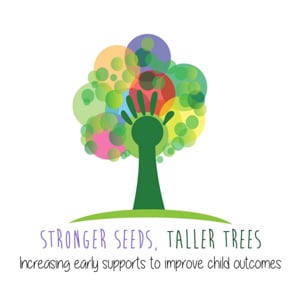05 December 2023

With practices closing for the holiday period and cases rising, it’s time for your general practice to plan how to protect patients from COVID-19.
Patient factsheet
Redirecting your patients to after hours services and advice hotlines
My Emergency Doctor
Telehealth and video consultations are available 24/7 throughout the holiday period. Patients living in South Western Sydney may call this service to speak with an emergency doctor.
Call 1800 001 003
myemergencydr.com/southwesternsydney
Southern Highlands GP After Hours Service
Face-to-face, clinic and telehealth services will be available through the holiday period.
Call 48 616 433
www.shgpahs.com.au
NSW Health Flu and COVID-19 Care at Home Support Line
Advice for people managing COVID-19 at home.
Call 1800 960 933
National COVID Helpline
Use the 24/7 helpline to get advice and support when managing COVID-19 at home.
Call 1800 020 080
Read more on the Department of Health and Ageing website
TIS National
Use the Translating and Interpreting Service (TIS National) for 24/7 access to interpreters over the phone or to attend an appointment in person. TIS provide free interpreting services to anyone in Australia with a Medicare card.
Call 13 14 50
Read more about using TIS in your practice
COVID-19 antiviral medication information for older patients and their families
Share this information with your patients.
Oral treatments summary
If you test positive for COVID-19, you may be eligible for antiviral treatments if you are:
- 70 years of age or older, regardless of risk factors and with or without symptoms
- 50 years of age or older with 2 additional risk factors
- First Nations person, 30 years of age or older and with 1 additional risk factor
- 18 years of age or older and moderately to severely immunocompromised.
Visit the Department of Health and Ageing website for more information
Factsheet for residents and families on COVID-19 antivirals
COVID-19 oral treatments – factsheet for residents and their families in residential aged care homes
Managing COVID-19 at home information
Recommended resources for patients:
How to manage COVID-19 at home | South Western Sydney PHN
Managing COVID-19 | healthdirect
Managing COVID-19 at home | NSW Government
Testing positive to COVID-19 and safely managing at home | NSW Government
Patient factsheet
How practices can prepare for the holiday season
Highly recommended:
Toolkit from RACGP
RACGP’s “Helping you and your practice team prepare for summer” covers extreme weather events, continued virus and disease management, staff shortages, increases in presenting patients and practice closures over the holiday period can all place additional strain on your practice team.
Read more
How practices can prepare for the holiday season
Highly recommended:
Toolkit from RACGP
RACGP’s “Helping you and your practice team prepare for summer” covers extreme weather events, continued virus and disease management, staff shortages, increases in presenting patients and practice closures over the holiday period can all place additional strain on your practice team.
Read more
Managing COVID-19: Advice for GPs with patients living in aged care homes
A guide for GPs managing patients living in RACHs.
Read more
COVID-19 resources for general practitioners
This NSW Health article lists recommended articles for practices managing cases.
Read more
Infection prevention and control
Infection prevention and control guidelines for general practices and other office-based and community-based practices
RACGP’s guidelines for infection prevention, available as an online resource or downloadable PDF.
Read more
COVID-19 Infection Prevention and Control
Clinical Excellence Commission’s COVID-19 and ARI infection prevention and control for healthcare settings resources.
Read more
Antiviral medication information
Antiviral pre-assessment form
NSW Health form to support timely and safe access to antiviral medicines for vulnerable adults who are at higher risk of severe disease
Download form
Best practice antiviral administration information
Advice for antiviral treatments and prophylaxis in residential aged care facilities (RACF) – Fact sheets (nsw.gov.au)
Translated patient resources from NSW Government
Posters, factsheets, and graphics on COVID-19 for health workers, community groups, businesses, and people in NSW.
COVID-19 in-language and translated resources
COVID-19 translated resources – COVID-19
Department of Health and Aged Care – State office contacts
For assistance to access Commonwealth support for outbreaks over the holiday period, please contact your relevant Commonwealth Department of Health and Aged Care state office:
Email: NSWCOVIDCaseManagement@Health.gov.au
Phone: 1800 852 649
COVID-19 vaccines
Infographic: ATAGI recommended COVID-19 doses and vaccines (health.gov.au)
ATAGI clinical guidance for COVID-19 vaccine providers
Department of Health and Aged Care COVID-19 vaccination – Provider resources





